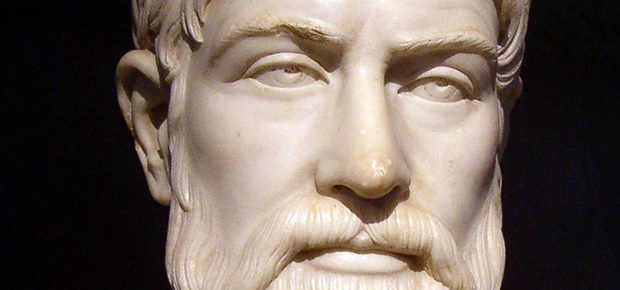
1.6 Poetry
The poetic form was used for philosophical and political writings. Among the earliest examples of poetry is that of Solon, who expressed his political and moral in elegiac couplets. At the end of the sixth century there was Xenophanes exile who left Asia Minor and went to live in Western Greece; half a century later, Empedocles of Agrigento and Parmenides of Elea, Important pre-Socratic philosophers, wrote only in poetic form. Herodotus is the first greek prose writer that you can say that was one great stylist and elegant. Even after there were but never in large numbers, apart from Plato and speakers, although literary works were written in prose in large quantities. The poem preserved the dominance until centuries of decline of Greek civilization under Roman rule, while the last boom came with some prose writers as Plutarch and Lucian, who were born in 46 and in 120 d.C.
Greek poetry underwent changes over time that reflected the history of Greek society itself. If the beginning of the Archaic period was marked by the passage from the epic poetry of a poet Archilochus as, the transition to the classical period saw another major change. To some extent the poem is always the expression of personal feelings of each poet, of his ideas and of his judgments (although the heroic poetry, culminating in the Iliad and the Odyssey he had a strong character impersonal). In classical Greece the issues and opportunities of poetry evolve from those of the individual (for example, the verses of Archilochus, the love poems of Sappho, songs convivial Anacreote) to those in the community. We can therefore say that the classical poetry left the singing of emotions purely personal social issues, Religious, and for the great moral grounds.
This change is apparent in the three figures concluded that the period of lyric poetry: Simonie of CEO, his nephew Bacchylides, and the Boeotian poet Pindar, probably the greatest, who lived between 518 and the 438 about. They were all very fruitful, and their works include a large variety of genres, as the hymns, i peani (usually written to celebrate a military victory), the dirges, the epigrams, the epinici in honor of a victor in the games. It 'should be noted that all this poetry was written for specific occasions, usually on a commission of some patron. Each poem was attached to a particular place just because of the occasion or the person who had inspired, but it was never a regional or national, as has always been the best part of modern poetry. Il give, for example, was originally a hymn to Apollo and never lost this peculiarity even when he became a hymn to victory and peace. The epinicio, the kind of ode better known because they are come down to us all epinici Pindar, taking as a basis a religious event, games celebrated on the occasion of a feast, and celebrated the winner with listings of moral precepts, maximum and also some political and social commentary. On the surface, the subject could be an athlete when in fact it was the community with its gods.
Though the odes of Pindar can still be defined lyrics, in the formal sense very small, even these short passages reveal that the major psychological and intellectual affinity is with the contemporary Athenian Aeschylus and with very different art form created by him: tragedy.




